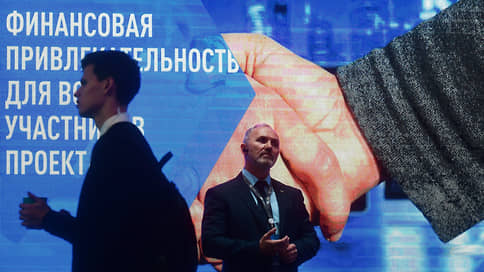Shareholders return to risk – Newspaper Kommersant No. 39 (7484) dated 03/09/2023
[ad_1]

After a massive withdrawal of funds from the collective investment market at the beginning of the year in February, investors began to return. As a result, the net outflow from retail mutual funds amounted to just over 100 million rubles, while in January it reached 3 billion rubles. Private investors gave preference to both the most conservative money market funds and the most risky equity funds (against the backdrop of a rise in the stock market). Mutual funds with regular income payments, which can be considered as some analogues of deposit accounts, are also in great demand.
In February 2023, the amount of funds raised in retail mutual funds almost equaled the amount of funds withdrawn. According to Investfunds, last month the net outflow from open-ended and exchange-traded mutual funds amounted to only 100 million rubles. In January, the sale of shares exceeded 3 billion rubles. (see “Kommersant” dated February 7). The main outflow of funds occurred at the expense of open funds, net withdrawals from them amounted to 0.63 billion rubles, which is more than three times less than a month earlier. At the same time, 0.53 billion rubles were invested in exchange-traded funds, which half compensated for the January outflow.
Investors continue to reduce investments in bond funds. According to the results of February, the net outflow from them amounted to about 4.5 billion rubles, which is 0.5 billion rubles. more than in January. This happened against the backdrop of rising rates (and, accordingly, falling quotes) on the debt market. In particular, the yield on medium-term OFZ issues rose by 15–40 basis points (b.p.) to 8.5–9.5% per annum, while long-term issues rose by 50–55 bp. up to 11% per annum.
“The main short-term idea that influences the behavior of investors is the rise in prices following the reduction in the key rate. However, it has not yet been implemented, some investors are beginning to lose patience, to doubt that the monetary policy of the Central Bank will be softened,” says Viktor Bark, director of the asset management department of Alfa Capital Management Company.
With rising interest rates on the debt market, private investors began to look at investing in money market funds with great interest.
Over the month, clients invested over 1.5 billion rubles in such funds. against 0.34 billion rubles. a month earlier. “Money market instruments are now offering quite good yields, they are pulling retail investors’ funds. In such funds, they have taken a comfortable wait-and-see attitude,” notes Mr. Bark.
At the same time, significant inflows go to riskier equity and mixed funds. Investments in funds of these categories for the month amounted to 0.9 billion rubles. and 1.4 billion rubles. respectively. If in the case of equity mutual funds the inflows remained near the January indicator, then in the case of mixed investment funds they exceeded it by more than one and a half times. This is facilitated by attraction to mutual funds with the payment of intermediate income: almost 6 billion rubles, which is 1.6 billion rubles. more than the total of January. Investors are attracted by the opportunity to receive regular payments, which makes the product similar to bank deposits.
“Because income-paying fund clients remain unit owners, they are not missing out on the potential growth of the Russian market,” said Andrey Makarov, head of sales at Pervaya Management Company. Also, these funds are a relatively new product, which also stimulates interest in them, says Ivan Lavrinenko, investment director at RB Capital.
In the coming months, managers expect net attraction in the collective investment market, which will be supported by the recent growth in the stock market.
Over the past two weeks, the Moscow Exchange index has risen by almost 6% and approached the level of 2300 points. “After the tenth package of sanctions from the EU was adopted, the uncertainty was gone, and the Russian stock market grew quite quickly,” Andrey Makarov notes.
The tightening of the rhetoric of the Bank of Russia regarding the key rate is unlikely to have a strong impact on inflows into mutual funds, according to the market. “So far, we do not see a trend towards an increase in deposit rates that can weaken interest in funds,” Mr. Lavrinenko notes. “We expect a shift in emphasis to Russian equity funds, as we see an improvement in both company expectations and analysts’ consensus on the dynamics of the Russian economy.”
[ad_2]
Source link





